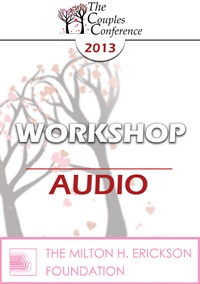
- Average Rating:
- Not yet rated
- Topic Areas:
- Couples Therapy | Workshops | Therapist Development | Trauma
- Categories:
- Couples Conference | Couples Conference 2013
- Faculty:
- Peter Pearson, PhD
- Duration:
- 1:38:55
- Format:
- Audio Only
- Original Program Date:
- Apr 21, 2013
- Short Description:
- Volatile couples come to couples therapy with a fearsome mixture of trauma, devastated dreams, and defensive attitudes. If you ask about their goals or how you can help, you quickly get intense cross complaints, and pressure to fix their partner. Simply trying to understand their problems and asking about their goals can be a toxic beginning as their defensiveness and trauma get re-triggered. This innovative approach is the result of 30 years of seeing couples and searching for a better beginning. In this workshop you will understand how to have each person identify their role in the distress, accept accountability for self-change, identify personal growth changes that are a stretch, create the foundation to work as a team and do it all with a spirit of cooperation and positive strokes. Do all this and more in the first session.
- Price:
- $15.00 - Base Price
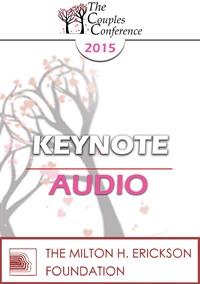
- Average Rating:
- Not yet rated
- Topic Areas:
- Couples Therapy | Keynotes | Communication | Relationships
- Categories:
- Couples Conference | Couples Conference 2015
- Faculty:
- Harville Hendrix, PhD | Helen LaKelly Hunt, PhD
- Duration:
- 1:00:38
- Format:
- Audio Only
- Original Program Date:
- Apr 24, 2015
- Short Description:
- In the old way of thinking, couples were depicted as a communication system that could be improved with relational skills or as interacting psychopathologies needing treatment by a mental health professional. In the new way of thinking, couples are a system of mutually reinforcing interactions that create anxiety or safety, wounding or healing. They also are the source of culture and the fulcrum of social transformation. What happens in the couple happens in the culture; what happens in the culture happens in the couple.
- Price:
- $15.00 - Base Price
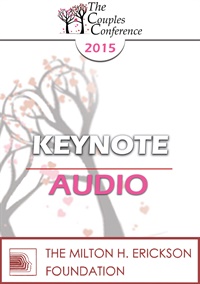
- Average Rating:
- Not yet rated
- Topic Areas:
- Couples Therapy | Sex and Sexuality | Keynotes | Intimacy | Relationships
- Categories:
- Couples Conference | Couples Conference 2015
- Faculty:
- Pat Love, EdD
- Duration:
- 53:58
- Format:
- Audio Only
- Original Program Date:
- Apr 24, 2015
- Short Description:
- Our natural sexual setpoint explains a lot about arousal, desire and intimate satisfaction. We will explore this issue with research, facts and humor, with the objectives of understanding the effects of estrogen on desire and the effects of testosterone on desire.
- Price:
- $15.00 - Base Price
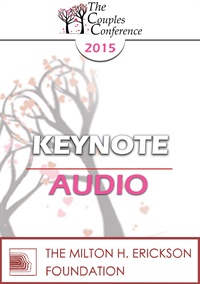
- Average Rating:
- Not yet rated
- Topic Areas:
- Couples Therapy | Attachment | Keynotes | Anxiety | Intimacy | Sex and Sexuality | Love
- Categories:
- Couples Conference | Couples Conference 2015
- Faculty:
- Esther Perel, MA, LMFT
- Duration:
- 57:21
- Format:
- Audio Only
- Original Program Date:
- Apr 25, 2015
- Short Description:
- This bold take on intimacy and sex grapples with the obstacles and anxieties that arise when our need for secure love conflicts with our pursuit of passion. We will tackle eroticism as a quality of vitality in relationships extending far beyond mere sexuality and show how reconciling these two competing needs is at the heart of sustaining desire over time. We will address paradoxes of desire and how social forces inhibit erotic expression; attachment history and the erotic blueprint.
- Price:
- $15.00 - Base Price
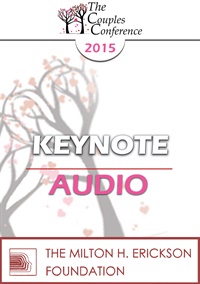
- Average Rating:
- Not yet rated
- Topic Areas:
- Couples Therapy | Keynotes | Trauma
- Categories:
- Couples Conference | Couples Conference 2015
- Faculty:
- Bill O'Hanlon, MS
- Duration:
- 55:33
- Format:
- Audio Only
- Original Program Date:
- Apr 25, 2015
- Short Description:
- Rituals have been used for thousands of years to help people move through difficult developmental times, to move on from problems and stuck places and to grieve and leave trauma behind. In this session, you will discover the two types of rituals that can help couples resolve their issues effectively.
- Price:
- $15.00 - Base Price
Tags: Couples Therapy Trauma
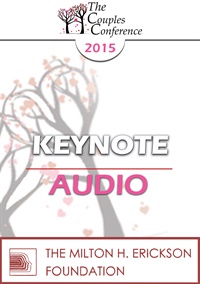
- Average Rating:
- Not yet rated
- Topic Areas:
- Couples Therapy | Keynotes | Divorce | Marriage | Relationships
- Categories:
- Couples Conference | Couples Conference 2015
- Faculty:
- William Doherty, PhD
- Duration:
- 48:19
- Format:
- Audio Only
- Original Program Date:
- Apr 26, 2015
- Short Description:
- What do you do with couples who are split on trying to working on their relationship or calling it quits? They are often poor candidate for traditional couples therapy but they are idea candidates for "Discernment Counseling," a creative way of working with couples our therapy models are not designed for. We will discuss the difference between couples therapy and discernment counseling.
- Price:
- $15.00 - Base Price
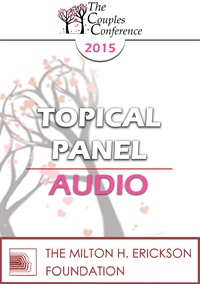
- Average Rating:
- Not yet rated
- Topic Areas:
- Couples Therapy | Topical Panels | Differentiation | Brief Therapy
- Categories:
- Couples Conference | Couples Conference 2015
- Faculty:
- Ellyn Bader, PhD | Judith Anderson | Peter Pearson, PhD
- Duration:
- 43:37
- Format:
- Audio Only
- Original Program Date:
- Apr 24, 2015
- Short Description:
- CC15 Topical Panel 01 - Why Differentiation Matters - Ellyn Bader, PhD, Peter Pearson, PhD, and Judith Anderson
- Price:
- $15.00 - Base Price
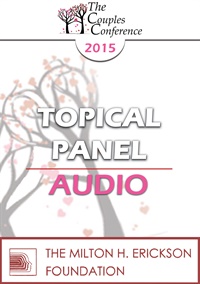
- Average Rating:
- Not yet rated
- Topic Areas:
- Topical Panels | Attachment | Couples Therapy
- Categories:
- Couples Conference | Couples Conference 2015
- Faculty:
- Harville Hendrix, PhD | Stan Tatkin, PsyD, MFT | Marion Solomon, PhD
- Duration:
- 1:01:42
- Format:
- Audio Only
- Original Program Date:
- Apr 24, 2015
- Short Description:
- CC15 Topical Panel 02 - Deepening Attachment and Connection - Harville Hendrix, PhD, Marion Solomon, and Stan Tatkin, PsyD
- Price:
- $15.00 - Base Price
Tags: Attachment Couples Therapy
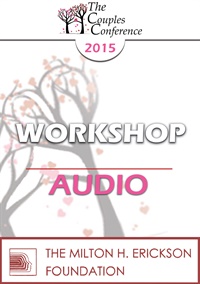
- Average Rating:
- Not yet rated
- Topic Areas:
- Couples Therapy | Workshops | Communication | Relationships | Goals of the Therapist
- Categories:
- Couples Conference | Couples Conference 2015
- Faculty:
- Harville Hendrix, PhD
- Duration:
- 1:38:54
- Format:
- Audio Only
- Original Program Date:
- Apr 24, 2015
- Short Description:
- Couples therapy tends to operate without a clear map of successful outcome, except the reported satisfaction/dissatisfaction of the couple. In this workshop, we will propose an optimal outcome of couple’s therapy, the process of reaching it and demonstrate the procedures that achieve it.
- Price:
- $15.00 - Base Price
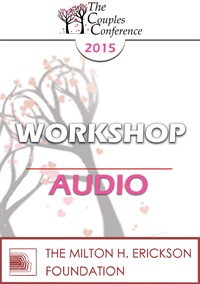
- Average Rating:
- Not yet rated
- Topic Areas:
- Couples Therapy | Workshops | Psychobiological Approach to Couples Therapy (PACT) | Attachment | Neurobiology | Therapist Development
- Categories:
- Couples Conference | Couples Conference 2015
- Faculty:
- Stan Tatkin, PsyD, MFT
- Duration:
- 1:54:28
- Format:
- Audio Only
- Original Program Date:
- Apr 24, 2015
- Short Description:
- This workshop focuses on couple therapy with highly disorganized partners and couples. Special attention will be paid to the importance of strong therapeutic frame (rules) and therapeutic stance (goals). Highly disorganized partners and couples will be viewed through the lens of attachment theory, regulation theory, and neurobiological development.
- Price:
- $15.00 - Base Price
Please wait ...

